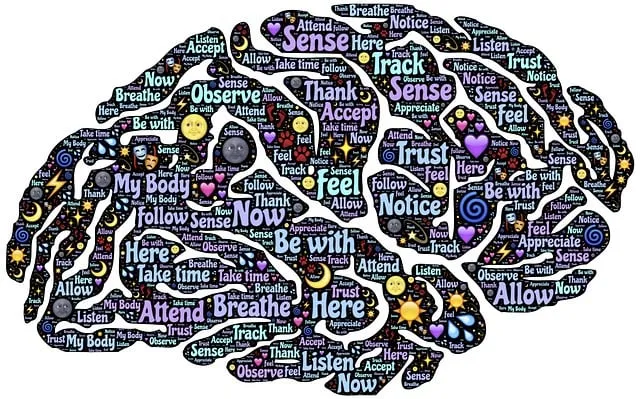Louisville Kaiser Permanente integrates mental wellness journaling into its comprehensive mental health services as a powerful tool for self-reflection and personal growth. By recording thoughts, emotions, and experiences, individuals gain insights, enhance self-awareness, and build resilience. This practice, guided by experts, also supports social skills training and conflict resolution techniques, fostering holistic well-being improvement through regular reflection and self-expression.
Unwind and reconnect with yourself through the transformative power of mental wellness journaling. This article explores how this creative outlet can serve as a powerful tool for self-reflection and emotional healing, drawing insights from Louisville Kaiser Permanente’s approach to integrating journaling into their mental health services. We’ll guide you through a step-by-step process to create your own effective mental health journal, empowering you to cultivate resilience and enhance overall well-being.
- Understanding Mental Wellness Journaling: A Creative Outlet for Self-Reflection
- Louisville Kaiser Permanente's Approach to Journaling as a Therapeutic Tool
- Step-by-Step Guide: How to Create Your Own Effective Mental Health Journal
Understanding Mental Wellness Journaling: A Creative Outlet for Self-Reflection

Mental wellness journaling is a powerful tool for self-reflection and personal growth, offering individuals a creative outlet to explore their thoughts and emotions. It’s an effective way to process life experiences, gain insights, and promote emotional well-being—a key focus of services like those provided by Louisville Kaiser Permanente mental health experts. By putting pen to paper, or fingers to keyboard, individuals can engage in a form of self-care practices that encourages introspection and fosters a deeper understanding of themselves.
Through journaling, one can reflect on their daily experiences, track moods, identify triggers, and develop strategies for managing stress. It’s also an opportunity to practice social skills training by considering interactions with others and applying conflict resolution techniques to real-life scenarios. This process can help individuals gain clarity, improve self-awareness, and cultivate resilience—all vital aspects of maintaining good mental health.
Louisville Kaiser Permanente's Approach to Journaling as a Therapeutic Tool

Louisville Kaiser Permanente recognizes the power of journaling as a therapeutic tool for enhancing mental wellness. Their approach integrates this practice into their comprehensive mental health services, targeting a holistic improvement in patients’ well-being. By encouraging regular reflection and self-expression through journaling, Kaiser Permanente’s mental health professionals aim to foster better understanding and management of one’s thoughts, emotions, and behaviors.
This initiative aligns with the healthcare provider’s commitment to Cultural Competency Training, ensuring that both patients and staff benefit from this practice. Additionally, Louisville Kaiser Permanente leverages Public Awareness Campaigns Development to educate their community on the benefits of journaling for stress management, further reinforcing its role as a valuable component in mental health care.
Step-by-Step Guide: How to Create Your Own Effective Mental Health Journal

Creating your own mental health journal can be a powerful tool for self-reflection and personal growth, especially with guidance from Louisville Kaiser Permanente mental health services. Here’s a step-by-step process to help you embark on this therapeutic journey:
1. Choose Your Journal: Select a notebook or digital document that feels comfortable to you. Consider factors like size, durability, and whether you prefer writing by hand or typing. Some people find colorful journals inspiring, while others opt for plain pages for more freedom.
2. Define Your Purpose: Reflect on why you want to journal. Are you looking to track your moods, practice gratitude, set goals, or improve emotional regulation? Louisville Kaiser Permanente mental health services suggest focusing on specific aspects like Social Skills Training or Resilience Building, depending on your needs.
3. Set a Routine: Consistency is key. Decide whether you’ll write daily, weekly, or whenever you feel the need to express yourself. Make journaling a non-negotiable part of your day for optimal benefits.
4. Create Sections (Optional): Organize your journal with different sections to cover various aspects of mental wellness. You can include prompts like “Gratitude List,” “Emotions Tracker,” “Achievements,” or “Challenges.” This structure helps you navigate your thoughts and feelings more effectively.
5. Write Freely: Start writing! There are no rules here, except to be genuine. Describe your day, your emotions, a recent event that impacted you, or even a dream. You can use prompts if needed, but let your thoughts flow naturally.
6. Practice Emotional Regulation: Use your journal as a safe space to process difficult emotions. Write about what’s bothering you and explore different perspectives. Louisville Kaiser Permanente mental health services emphasize the importance of this practice for building resilience.
7. Reflect and Review: Regularly revisit your journal entries to gain insights. Look for patterns in your moods, behaviors, or triggers. This reflective practice can help you identify areas for improvement and celebrate your progress.
Mental wellness journaling can be a powerful tool for self-improvement, as evidenced by Louisville Kaiser Permanente’s successful integration of this practice into their mental health services. By providing a creative outlet for self-reflection, journaling allows individuals to process emotions, track progress, and cultivate resilience. Following the step-by-step guide outlined in this article, you can create your own effective mental health journal, fostering better mental wellness and overall well-being.


